Understanding the Impact of Settling Collections on Credit
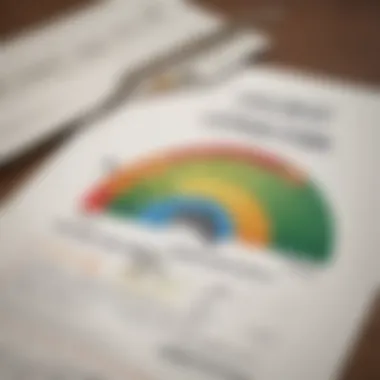
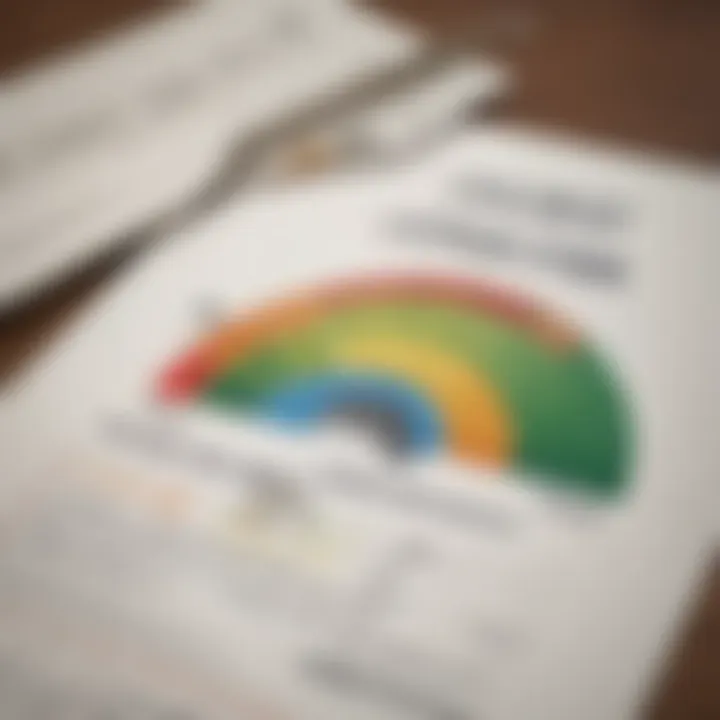
Intro
Understanding how financial decisions play out in our credit scores is essential for anyone trying to manage their financial future. One common question that rises up repeatedly is the impact of paying off old collections. When someone's debts go into collections, it can feel like a dark cloud hanging overhead. But how does settling these debts affect your credit score? This article is gearing up to explore the nuances of this subject.
Investment Dictionaries
Key Terms Explained
To fully appreciate the discussions ahead, it's good to define some terms that will pop up.
- Credit Score: A numerical expression of a person's creditworthiness, calculated based on their credit history.
- Collections: Debts that have been transferred to a collections agency after being unpaid for an extended period.
- Settled Debt: A debt that has been agreed upon between the debtor and the creditor, often resulting in the debtor paying less than the total amount owed.
These terms are pivotal in our understanding of credit scores and debt management. The clearer the definitions, the better equipped you are to tackle the forthcoming intricacies.
Glossary of Financial Terminology
It's also helpful to have a quick guide to some frequently used financial language:
- FICO Score: A specific type of credit score created by the Fair Isaac Corporation.
- Payment History: A record of your payments on credit accounts that constitutes a significant portion of your credit score.
- Credit Utilization: The ratio of your credit card balances to your credit card limits, illuminating how much of your available credit you are using.
Clarity on these terms helps in deciphering the relationship between paying old collections and the credit score.
Understanding Credit Scores and Old Collections
Credit scores are not just numbers; they’re cold hard facts about your financial behavior. Collections can weigh heavily on these scores and can linger like a bad smell long after debts are settled. When a collection account is paid off, some people might think their credit score will rise like a phoenix. However, the reality is a bit more nuanced.
When you settle a collection account, it doesn’t just disappear from your report instantly. Typically, it remains on your credit report for seven years from the original delinquency date. However, the impact on your score might lessen over time, particularly as positive payment behaviors emerge post-settlement.
"Settling old debts can pave the way for improving your financial health, but it's essential to understand the long-term implications on your credit report."
The Implications of Settled Debts on Credit History
Paying off older collection accounts can signal positive financial responsibility. Yet, it can also lead to mixed signals. On one hand, settling a debt shows that you took the responsibility to clear it. Yet on the other, credit scoring models might still weigh the collection negatively initially.
Impact Categories
- Short-term impact: Immediate score fluctuations depending on your overall credit profile. The initial dip may not reflect the long-term benefits of settling.
- Long-term impact: Over time, not having outstanding collections can enhance your cooperation with lenders as they see a settled portfolio as more manageable.
Strategies for Improving Your Credit Health
Recovery and improvement are possible for individuals dealing with past due accounts. Here are a few strategies:
- Regular Monitoring: Use tools to keep an eye on your scores regularly. This will help identify patterns over time.
- Build Positive Credit History: Pay bills on time, and try to keep credit utilization low. These habits can soften the blow a collection might have on a score.
- Consider Secured Credit Cards: They can be particularly beneficial for rebuilding credit, enhancing your profile positively over time.
- Consult Financial Advisors: Getting personalized help can lead you to tailored strategies based on your unique situation.
In summary, settling old collections often leads to mixed but potentially beneficial outcomes for your credit score. With careful strategizing and awareness, you can navigate the path to improved credit health. It's a marathon, not a sprint, and understanding these dynamics is vital for making smart financial choices.
Understanding Credit Scores
Understanding credit scores is crucial for anyone looking to manage their financial health effectively. These scores serve as a numerical representation of an individual's creditworthiness, influencing their ability to secure loans, attain favorable interest rates, and even impact rental agreements. Grasping the nuances of credit scores not only empowers individuals to take charge of their financial futures but also enables them to understand how various actions—like paying off old collections—can significantly shift these scores.
Credit scores are essentially a snapshot of how a consumer handles their credit obligations over time. They encompass various metrics, including payment history, credit utilization, and more. Each of these factors contributes to the overall score in different ways, and being informed about them can lead to better credit management. Moreover, a solid understanding of credit scores aids in making calculated decisions, whether one is dealing with old debts or simply trying to maintain a good credit standing.
What Is a Credit Score?
At its core, a credit score represents a numerical value calculated based on an individual's credit history. Scoring models, like FICO or VantageScore, typically range from 300 to 850, with higher scores indicating better credit performance. These scores are directly tied to how likely one is to repay borrowed money. Thus, a strong score can unlock opportunities for lower interest rates and better financial products.
Factors Influencing Credit Scores
Credit scores are not arbitrary; they depend on several key factors:
Payment history
The most critical aspect of credit scoring is the payment history. It accounts for a significant portion of a credit score. This factor tracks whether bills were paid on time, missed, or settled late. A strong payment history is beneficial because it demonstrates reliability and discipline, which lenders prefer.
However, even a single missed payment can remain on a credit report for several years, potentially lowering the score. Hence, maintaining timely payments is essential for those looking to improve their credit scores.
Credit utilization
Credit utilization refers to the ratio of current credit card balances to total credit limits. Keeping this ratio low is advantageous, as it indicates that you are not overly reliant on credit. A widely accepted benchmark is to keep utilization below 30%. When individuals overextend themselves, it can raise red flags to potential lenders about their financial health.
Length of credit history
The length of credit history considers how long your credit accounts have been active. A well-established credit account can positively influence your credit score. Lenders tend to favor applicants with a long history, as this demonstrates experience in managing credit. Comparatively, new accounts could decrease the average age of credit history, which can temporarily lower scores.
Types of credit
The variety of credit accounts—like credit cards, mortgages, and installment loans—represents the types of credit held. A healthy mix of credit accounts can foster a better score. It shows lenders an ability to manage various credit types responsibly, thus making you a more appealing borrower.
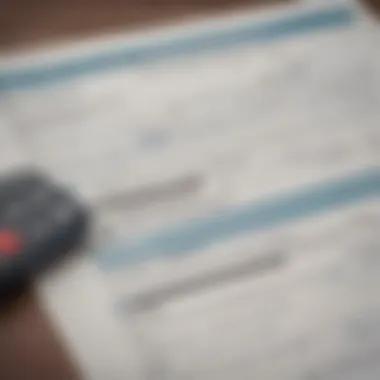
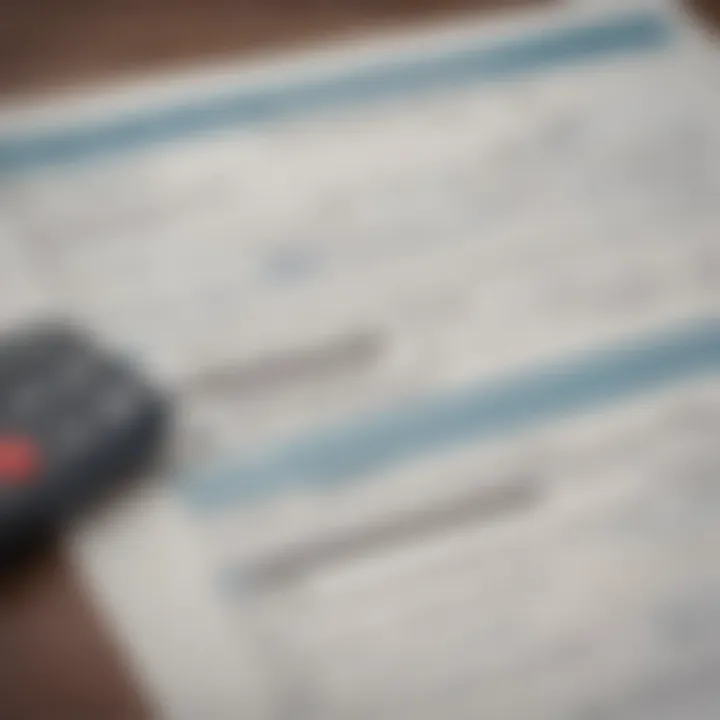
New credit inquiries
Lastly, new credit inquiries reflect any recent attempts to open new credit accounts. Each inquiry can slightly diminish your score, primarily because it indicates potential financial trouble. However, multiple inquiries within a short period may not impact the score severely if they are related to the same type of credit application, as they can signal rate shopping.
"Knowing how your credit score is calculated can make a world of difference in how you approach your financial decisions."
By grasping these key elements, anyone can start to understand how paying off old collections or managing existing credit might affect their overall credit health. Whether you're aiming for better rates on loans or simply want to improve your financial standing, being informed about credit scores is the first step in the right direction.
The Nature of Old Collections
Understanding the nature of old collections is critical when discussing the impacts these collections have on credit scores. Old collections can create a cloud over one's financial standing, casting a long shadow that influences not just credit scores but also perceptions of creditworthiness. For investors, financial advisors, and all stakeholders dealing with credit, having clarity on what constitutes a collection and how it fits into the broader credit landscape will ultimately support sound financial decisions.
Defining Collections
Collections refer to outstanding debts that have been escalated to a third party after the original creditor attempts to recover the owed amount. When payments fall behind, creditors typically follow a structured approach:
- Initial Attempts: The creditor will first try to collect the debt directly. This may involve reminders or even threats of legal action.
- Transfer to Collection Agency: If these attempts fail, the creditor may choose to transfer the debt to a collection agency. At this point, the debt can be marked as "in collections" on one’s credit report.
- Impact on Credit Report: The moment an account goes into collections, it becomes a glaring red flag on the borrower’s credit report.
Notably, collections can include various forms of accounts—from medical bills to credit card debt. The nature of these collections will directly influence the severity of the impact on one's credit score. For example, collections related to a medical bill might be viewed with a bit more leniency than those associated with a defaulted credit card.
The Lifecycle of Debt Collections
Understanding the lifecycle of debt collections provides insight into how these collections evolve and how they affect consumers over time. The cycle typically unfolds in distinct phases:
- Inception of Debt: Initially, an individual might miss a payment. This can happen for various reasons—unexpected expenses, loss of income, or simple oversight.
- Late Payments: As the situation stretches on, subsequent late payments accumulate. This phase usually sees the creditor sending out reminders or warnings.
- Transition to Collection: If the debt remains unpaid for several months, the original creditor may hand it over to a collection agency. This is often the turning point where one's credit score faces a significant hit.
- Collection Efforts: The collection agency will then pursue the debt, which can involve consistent communication, negotiation, or perhaps even legal action. During this time, the debt continues to reflect negatively on the consumer’s credit.
- Resolution: Eventually, the individual may resolve the debt, either by paying it off in full or settling for a lower amount. However, the collection may still stay on the credit report for several years.
In sum, grasping the nature and lifecycle of old collections equips consumers—and those assisting them—with the knowledge to navigate their financial landscape effectively. Recognizing when and how collections affect credit scores allows for better strategic decisions in managing old debts and improving overall credit health.
Impact of Collections on Credit Scores
Understanding how collections influence credit scores is crucial for anyone striving to manage their financial health effectively. When a debt goes unpaid for an extended period, it often gets passed to a collection agency, which can leave a lasting mark on one's credit history. This moment is not just a hiccup; it poses a significant challenge for future financial undertakings, such as buying a home or securing a favorable interest rate.
Old collections can weigh heavily against an individual’s credit score, and this impact can linger for several years. However, it's essential to recognize that managing these accounts proactively can lead to eventual score improvement. Factors such as payment history, credit utilization, and number of accounts in collections all hold weight in the score calculations. Thus, understanding these dynamics helps individuals make decisions that can positively affect their financial future.
How Collections Affect Credit Scores
When a collection account appears on a credit report, it is typically a red flag for lenders. An account sent to collections indicates that a consumer has fallen behind on payments, which suggests financial irresponsibility or instability. In turn, FICO and VantageScore, the two primary credit scoring models, will factor these collections heavily in calculating overall scores.
- Severity of Impact: The more serious the delinquency, the more damaging it will be. For instance, a collection account can result in a significant drop—sometimes 100 points or more—depending on the individual's credit history prior to the collection.
- Current Accounts vs. Old Accounts: Newer collection accounts can hurt more than older ones, particularly if the individual's other credit management practices are sound. The duration since the delinquency can soften the blow, though it won't erase the negative mark entirely.
Collections are not treated equally in credit scoring models. For example, a collection account that is paid can still appear on a credit report but may be viewed less negatively compared to one that remains unpaid.
Timeframe of Impact
The timeline in which collections affect credit scores is an often misunderstood element. A collection account typically remains on a credit report for up to seven years from the date of the first missed payment that led to the collection.
- Immediate Effects: Right after a collection goes on the report, individuals can expect a noticeable decrease in their credit score. The exact timing of this drop can feel like an impending storm, especially if one is not well-informed.
- Duration of Impact: Over time, the impact will diminish as long as action is taken towards other positive credit behaviors. For example, maintaining low credit card balances, making timely payments, and keeping older accounts open can contribute to a gradual score recovery.
"Life's too short to be without the financial tools you need. Understanding collections is the first step to taking back control."
As you navigate this complex landscape, bear in mind that each choice, whether paying off a collection or setting up a new payment plan, paves the way for a more solid credit future.
Paying Off Collections
Understanding the implications of paying off old collections is essential for anyone seeking to enhance their credit profile. When you clear remnants of old debts, which may be dragging down your overall credit score, it can signify a fresh financial start. Many people often hold back from addressing these debts due to confusion about the outcomes. It's crucial to grasp the specific benefits and considerations involved in paying off collections.
Among the foremost advantages, paying off collections can lead to score improvements over time. Though the initial impact may not always be immediately positive, eventually, lenders see satisfaction of debt as a responsible repayment action. This can favorably tilt credit decisions in your favor. Additionally, it can afford you peace of mind, reducing the stress that unresolved debts can bring.
Along with these benefits, there are pertinent factors to consider. Not all collections influence your score in the same manner. Some may have more significant weight than others, depending on when they occurred and how they were reported. Different credit scoring models also have varied reactions to paid versus unpaid collections, making it essential to research or seek guidance tailored to your individual situation.
In summary, while the idea of paying off old collections can seem daunting, understanding its ramifications allows individuals to navigate their financial choices with greater confidence.
What Happens When You Pay Off a Collection?
When you pay off a collection, the immediate effect is typically an update on your credit report reflecting the debt as "paid" or "settled." This change can be perceived as a positive signal to lenders, who often consider this a sign of financial responsibility. However, it’s important to note that the historical negative mark may still linger on your report, affecting your score in the short term. The length of time that collections affect credit varies across credit scoring models.
A more favorable note is that, over time, lenders may pay less attention to paid collections compared to the unpaid ones during new credit evaluations. The significance of this paid status grows as time progresses, especially if your overall credit activity shifts toward positive behaviors.
Is Paying the Full Amount Necessary?
Not everyone has the means to pay off collections in full, and many wonder if this is a necessary step in improving their scores. Fortunately, the answer doesn't have to be a simple yes or no.
Settling for less
Settling for less than the full amount can be a viable strategy. This means negotiating a reduced sum with a collector, which can free you from the burden of larger debts without draining your finances. The key characteristic of this option is its accessibility—it allows individuals to tackle significant debts without the need for a windfall of cash. Moreover, this approach can still lead to a "paid" status when reported, which is better than having an open collection showing a larger balance.
Nevertheless, settling for less can have its caveats. If the debt collector reports the settled amount as 'settled' rather than 'paid in full,' future lenders might see it as a sign that you didn't fulfill the total obligation. This perception can potentially affect your credit applications negatively.
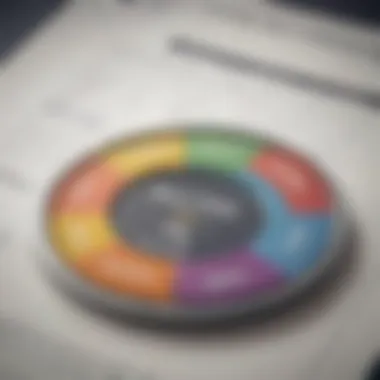
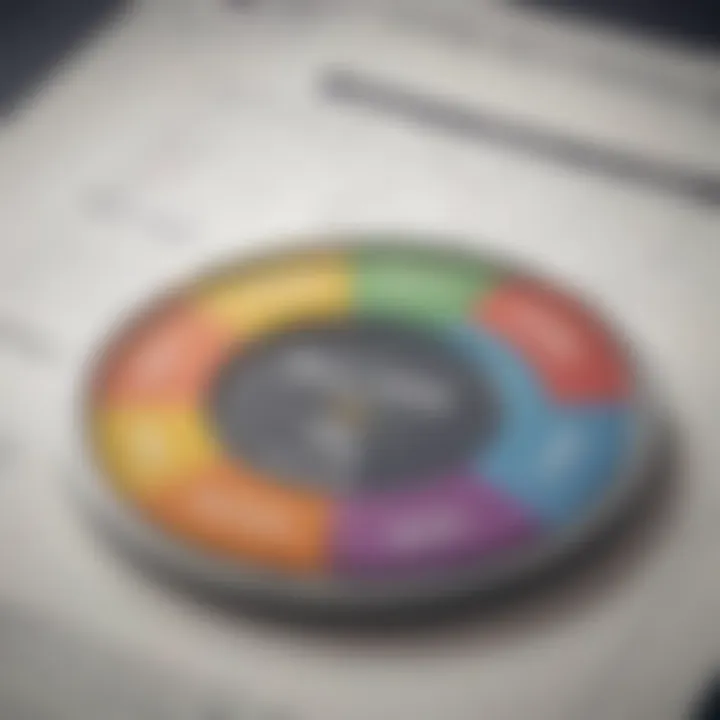
Negotiation strategies
Negotiation strategies play a critical role in approaching the settlement process effectively. These tactics encompass a range of actions, from understanding when to negotiate to actively engaging collectors with proposals for payment. The hallmark of successful negotiation lies in crafting an offer that reflects your financial capability while still providing an incentive for the collector to accept it. Good negotiation can lead to more favorable terms, such as extended payment periods or even additional discounts on debt amounts.
The unique feature of negotiation strategies is that they empower individuals to gain leverage in their financial situations. An effective negotiator can turn a tough position into a manageable one, resulting in the ability to resolve debts without the stress of full repayment. However, not all collectors will respond favorably, and thus it could require patience and persistence.
Ultimately, whether you're settling for less or mastering negotiation strategies, understanding your options enables you to take command of your financial narrative.
Effects of Paying Off Collections on Credit Scores
Understanding how paying off old collections influences your credit score is crucial for making informed financial decisions. When it comes to managing debts, many people feel overwhelmed, especially when dealing with collections that linger on their credit reports. Being in the know about this topic can empower individuals to take proactive steps toward better financial health and ultimately lead to improved credit scores.
Old collections can significantly damage your credit score, but the effects of paying them off can vary. Factors such as payment timing, whether the debt was settled in full or for less, and the overall management of other credit responsibilities can all play a role. Understanding these nuances not only helps you to make better decisions but can also pave the way to financial freedom.
Short-Term Score Changes
When you pay off a collection account, there may be immediate shifts in your credit score, both positive and negative. Generally, clearing away an unpaid collection could lead to a quicker improvement in your score. However, it’s not always that simple. Let’s break it down:
- Initial Impact: Most often, folks see a drop in their score when they pay off a collection, especially if the account was not actively in use. This is because the credit bureaus update information, which can temporarily extinguish some positive credit history.
- Reporting Delays: Often, creditors take their sweet time updating your records. Don’t be surprised if your score doesn’t reflect the payment immediately. Sometimes it can feel like waiting for paint to dry – you know the change is taking place, but it’s frustrating when it doesn’t show right away.
- Credit Utilization and Payment History: The two most influential components of your credit score, payment history and credit utilization, can experience shifts with the settling of collections. For some, settling old collections could signal to lenders that you’re turning over a new leaf, showcasing a more reliable payment pattern.
"Just because a score takes a dip doesn't mean you’ve failed; think of it as a step back to spring forward."
Long-Term Benefits
In the grand scheme, paying off old collections can set you up for long-term benefits that outweigh the temporary setbacks. This is especially true if you play your cards right with other aspects of your credit health. Here are some potential long-term advantages to consider:
- Positive Credit History: Once a collection is paid, it shows lenders you are taking responsibility, which can be a positive signal during future credit inquiries. Over time, this can lead to score improvement as older collections fade in importance.
- Better Loan Opportunities: With a cleaner credit profile post-payment, you might open the door to better financing options, like lower interest rates and improved credit limits. This can be especially beneficial when applying for major loans such as a mortgage or an auto loan.
- Lower Insurance Premiums: Did you know some insurance companies check your credit score? A better score can even lead to reduced premiums on things like auto or home insurance.
- Peace of Mind: Let’s not forget the emotional toll that unpaid collections can have. Paying them off can help alleviate anxiety and stress associated with old debts and provides a sense of accomplishment.
As you can see, paying old collections doesn’t have to be the end of a story; it can mark the beginning of a new chapter in your financial journey. With a clear understanding of the short-term fluctuations and long-term gains, even those daunting debts can start to feel manageable.
Credit Reporting Practices
Understanding credit reporting practices is key to unraveling how paying off old collections affects credit scores. The way credit bureaus handle collections is both complicated and significant, as it shapes the very foundation of an individual’s credit score. Simply put, familiarity with these processes provides individuals with a clearer path towards enhancing their credit health.
The Role of Credit Bureaus
Credit bureaus operate at the heart of credit reporting and scoring. These are the organizations that collect information about an individual’s credit history, including payment records, credit inquiries, and existing debts. Major players like Experian, TransUnion, and Equifax gather this data from lenders, creditors, and public records. They create a detailed file for each consumer, which lenders rely on to determine creditworthiness. Understanding the titular role of these bureaus allows one to comprehend how taking steps, like paying off collections, can influence their credit score over time.
Credit bureaus utilize algorithms to calculate credit scores, taking into account various factors such as payment history and credit utilization. When old collections are resolved through payment or negotiated settlements, these bureaux update the consumer’s file. However, it’s crucial to recognize that they do not operate in a vacuum. The actions taken by consumers towards settling debts can lead to fluctuations in scores as the bureaus adjust the information currently captured.
How Collections Are Reported
Fair Credit Reporting Act
The Fair Credit Reporting Act (FCRA) plays a groundbreaking role in dictating how collections can be reported on a consumer's credit report. This law was established to promote accuracy, fairness, and privacy of information contained in the files of consumer reporting agencies. One of its standout features is its provision for consumers to dispute inaccurate information. If a consumer pays off a collection, this act helps ensure that updated records reflecting that payment should replace older, potentially misleading entries.
Since this law mandates that negative items must be removed after a certain period—typically seven years—its significance in this narrative is invaluable. The FCRA is a necessary weapon in the financial arsenal of consumers, enabling them to rectify mistakes that could unfairly hamper their credit standings.
Disputing inaccuracies
Disputing inaccuracies is an integral part of the credit reporting landscape. This process allows consumers to challenge information that may not accurately reflect their credit history. If a paid collection still shows as outstanding, a consumer can file a dispute with the credit bureau involved. The bureau then investigates, which may lead to corrections if the data is found to be incorrect.
The fundamental character of disputing inaccuracies lies in its empowering nature for consumers. By actively engaging with their credit reports, individuals can maintain better financial health, fostering confidence in their financial journeys. Disputes can also provide immediate benefits, improving credit scores and potentially affecting the terms offered by future lenders.
While the process does have its complexities, ensuring accurate reporting leads to a healthier credit profile and serves as a significant step toward financial stability. The choices consumers make in this process can be the difference between acceptable and excellent credit scores.
"Credit is like a game; understanding the rules can turn a bad hand into a winning one."
Psychological and Emotional Factors
Understanding the psychological and emotional factors tied to old collections is essential in shaping a person's approach to credit health. Financial challenges often result in stress, impacting not only monetary decisions but also mental well-being. When an individual grapples with old debts, their emotional state can become fraught, overshadowing other aspects of life. The importance of addressing these feelings cannot be understated, as it can significantly influence one’s financial decisions moving forward.
The Stress of Old Collections
Old collections can loom like a dark cloud, leaving individuals feeling trapped in a financial corner. Many people experience anxiety when it comes to their credit history, particularly if they have outstanding collections. This stress can manifest in various ways, including sleepless nights and heightened anxiety levels. According to studies, chronic financial stress can affect health, resulting in headaches or digestive issues. Feeling like your credit score is the proverbial albatross can make people hesitant to make financial moves or seek help.
Some might feel that these debts define their financial identity, making it hard to see a brighter financial future. However, it’s crucial to recognize that old collections often represent more than just a number; they symbolize missed opportunities, whether it's buying a home or obtaining favorable loan rates. Yet, the pursuit of financial freedom can pave a path to clarity.
"The weight of old collections can feel unbearable, but knowing how to manage that weight can lead to a more liberating life experience."
Achieving Peace of Mind
Working towards financial independence is a journey that can lead to a sense of relief and accomplishment. Paying off old collections, while demanding some effort, can liberate individuals from the shackles of ongoing stress. Once paid off, there’s often a sense of closure, an acknowledgment that a burden has been lifted off their shoulders. Not only does settling accounts provide peace, but it also offers a mental reset in the face of continued financial struggle.
The act of settling a debt is more than just a transactional relationship; it’s a critical step toward rebuilding confidence. Many find that upon payment, they become more proactive about their budgeting and spending. With improved clarity, attention can refocus on future financial goals.
In summary, recognizing the psychological impacts of old collections allows individuals to take ownership of their financial future. Taking those steps, no matter how incremental, can lead to profound emotional relief and the possibility of a healthier financial relationship.


Alternatives to Paying Off Collections
When it comes to managing old collections, there are various pathways one can take that may prove beneficial in repairing credit scores or easing financial burdens. Recognizing these alternatives is crucial for individuals who find themselves entangled in the web of past due debts. Sometimes, paying off a collection account in full might not be the most feasible or effective option available. Additionally, understanding others' experiences—such as how different strategies can lead to success or failure—can empower debtors to make informed choices.
Exploring these alternatives allows debtors to weigh the pros and cons without the immediacy of a traditional payment. Whether it’s about mitigating damage, negotiating new terms, or even seeking legal help, grasping each element can uplift individuals from their financial predicaments.
Debt Settlement Options
One of the most common alternatives to paying off collections directly is engaging in debt settlement. This option not only offers a potentially lower financial burden but could also be a more strategic way of moving forward. In essence, debt settlement involves negotiating with collection agencies to pay less than the total amount owed.
Benefits of Debt Settlement:
- Reduced payment: Typically, individuals can negotiate to pay a significant portion less than the total owed. This can relieve immediate financial stress.
- Avoiding bankruptcy: This can be an attractive option for many, as it may prevent the more severe repercussions associated with bankruptcy.
- Saving face: Settling a debt can maintain some level of trustworthiness with creditors, as opposed to defaulting or ignoring debts altogether.
Considerations:
- Impact on credit score: While a settled account can be better than owing the full amount, it will still have negative implications on credit reports.
- Negotiation skills required: Not every individual feels comfortable with negotiation, which may require seeking professional input.
"Debt settlement may not be the panacea some may hope for, but it's worth considering in today’s economic climate."
Bankruptcy as a Consideration
Another alternative worth exploring is bankruptcy. This is often viewed as a last resort due to the stigma and long-lasting effects on credit history. Nevertheless, for those drowning under significant debts, filing for bankruptcy may provide a clean slate.
Key aspects of Bankruptcy:
- Types of bankruptcy: Different types exist—such as Chapter 7 and Chapter 13—often tailored for varying financial scenarios. Individuals need to assess which type suits them best based on income and assets.
- Potential for debt discharge: In many cases, bankruptcy can eliminate or substantially reduce unsecured debts, allowing individuals to focus on rebuilding financial health.
Pitfalls:
- Long-term credit impact: A bankruptcy filing stays on a credit report for years, impacting borrowing potential and costs for far longer than other alternatives.
- Not always forgiving: Certain debts, like student loans or tax obligations, may not be dischargeable through bankruptcy.
In summary, while paying off collections may seem like a straightforward route, the alternatives present nuanced options. Both debt settlement and even bankruptcy serve their purposes and could potentially realign a person's financial future.
By understanding these avenues, individuals can make strategic decisions that best suit their circumstances while engaging their creditworthiness in the long term.
Practical Steps for Managing Collections
Managing old collections can sometimes feel like climbing a mountain. However, it's crucial in understanding how to boost your credit score. When faced with collections, a well-structured approach can make all the difference. It is not just about paying debts; it’s about setting a course for healthier financial habits moving forward. This section outlines practical strategies that can ease the burden of collections, guiding you towards a path of credit restoration.
Creating a Payment Plan
A payment plan is like a lighthouse amidst a stormy sea, guiding you through financial turmoil. Start by assessing your current financial situation; jot down essential numbers like your income, fixed expenses, and discretionary spending. This map will help you figure out how much can be allocated towards settling collections each month.
Consider the following steps to create an effective payment plan:
- List Out Your Debts: Make a list of all your outstanding collections. Knowing whom you owe and how much is half the battle.
- Prioritize Payments: Focus on debts with higher interest rates or those that might have more severe consequences if left unpaid.
- Negotiate with Creditors: Don’t shy away from reaching out to your creditors. Many are open to negotiation, which could result in lower payments.
- Set Realistic Goals: Small victories will keep your motivation high. Maybe aim to pay off one smaller collection first before moving on to larger ones.
Once you have your plan, stick to it like it's your roadmap through a bustling city. Every payment made is a step closer to financial freedom.
Tracking Credit Progress
Once you have settled debts or are actively paying them off, you need to remain vigilant. Think of tracking your credit progress as tending to a garden. It thrives with attention and care, and you'll want to know how each action affects your credit score.
Here are some actionable steps to keep an eye on your credit status:
- Use Credit Monitoring Tools: There are many tools available, both free and paid, that can alert you to changes in your credit report. Utilize resources such as credit karma or annualcreditreport.com to monitor your score.
- Regularly Review Your Credit Report: Check for inaccuracies. Mistakes happen, and if you see something that doesn’t look right, fight back. You can dispute incorrect entries that might unfairly drag your score down.
- Monitor Your Spendings: Create a monthly budget that includes all your fixed and variable expenses. Adjust as necessary and make payments accordingly to collections to ensure your plan stays on track.
- Celebrate Small Wins: As you see your credit score inch upwards, celebrate these small milestones. Each step is progress in reclaiming your financial health.
"The journey of a thousand miles begins with one small step." - Lao Tzu
Ending and Recommendations
The significance of understanding the relationship between paying off old collections and credit scores cannot be overstated. This article has laid out the nuances surrounding credit scoring, including how old collections can linger and affect financial health. As we summarize the insights garnered through this discussion, it becomes evident that managing collections is not merely about obliterating debts; it’s about furnishing one’s financial future with a solid foundation.
Paying off collections can dramatically influence credit scores, even though the initial effects might seem discouraging. The journey towards better credit health is not a sprint; it’s a marathon. Every decision taken today holds the potential to reshape one’s tomorrow. For individuals and professionals navigating the complex waters of credit management, a few key elements emerge:
- Awareness of credit score factors: Knowledge about what influences scores can help in crafting a strategy.
- Informed payment choices: Deciding whether to settle for less or pay in full should not be knee-jerk reactions but rather calculated decisions based on overall financial objectives.
- Continuous monitoring: Keeping a finger on the pulse of your credit report enables swift action when needed. Information is power, after all.
In the end, the dual focus on both understanding credit scoring systems and addressing past debts arms individuals with the tools necessary to pave the path toward improved credit health. Now, let's delve into a summary of the findings and the subsequent actionable steps one can take.
Summarizing the Findings
- Collections actively diminish credit scores: Old collections, even if marking the past, can cast a long shadow. While time can mitigate this impact, proactively addressing these debts tends to yield far better outcomes.
- Timelines vary for score recovery: The timeline for credit recovery post-payment varies significantly based on individual circumstances, including the age of the collection and payment history.
- Strategic payments can lead to rejuvenated scores: Exploring options, such as negotiating settlements or making partial payments, can facilitate improvement in credit scores while easing financial burdens.
- Credit reports require vigilance: Continuous scrutiny of credit reports can unearth inaccuracies or outdated information that, if corrected, can promote a healthier credit profile.
Ultimately, one’s credit health is a reflection of decisions made today and their compounding effects.
Next Steps for Improved Credit Health
Taking charge of credit health involves tangible steps and a proactive approach:
- Create a personalized repayment plan: This can be paramount in tackling old debts. Consider your budget and timeline to set a realistic path to paying off collections.
- Leverage negotiation opportunities: Rather than straightforward payments, engage creditors. Many are willing to negotiate terms.
- Utilize resources for credit monitoring: Credit monitoring services can assist in keeping check on changes to your score, alerting you to fluctuations.
- Educate yourself: Keep abreast of credit health information through reputable sources. Knowledge will always serve as one of your greatest assets.
- Consider professional advice: Particularly for daunting situations, enlisting a financial advisor or a credit counselor can provide personalized guidance suited to your unique circumstances.
By following these steps and understanding the extensive implications of paying off old collections, individuals can open up pathways to improved credit scores, ultimately paving the way for enhanced financial opportunities.



